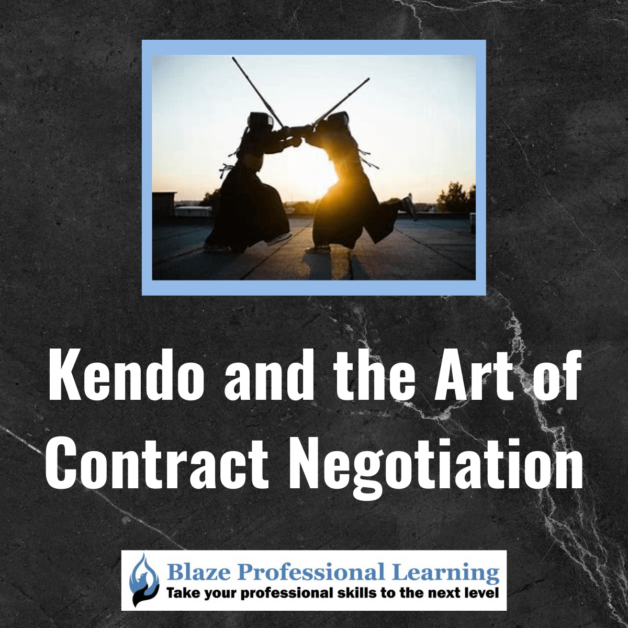After you've completed the Contract Review process, identified potential issues, fixed those issues (or had your Lawyer fix the issues), and re-reviewed the Contract, it's time to send the Contract to the other side and start negotiating. Negotiation can be a challenging process, but with the right approach you can reach an agreement that both parties are (at least somewhat) satisfied with.
In order to negotiate effectively after Contract Review, it is important that Contracts Professionals understand their priorities in entering into the Contract.
In this article, we'll discuss some tips on how to negotiate effectively after you finish reviewing the Contract. Some of our tips have a Basic and an Intermediate component, to reflect where you are at with your negotiation skills.
And check out my Contract Negotiation Guide for a lot more information about Contract Negotiation.
1. Identify your priorities
Before entering into negotiations, it's essential to identify your organisation's priorities.
Consider:
- What are the most critical issues that need to be addressed?
- What are your must-haves?
- What issues are negotiable?
You should have identified these critical issues and must-have during your Contract Planning and Contract Drafting stages, and your Contract Review stage should have given you the opportunity to make sure that these critical issues were dealt with in the Contract in accordance with your instructions.
If you do not know the important issues , ie where you must stand your ground during negotiations, you will likely be negotiating "blind". And you will make it much easier for the other party to achieve the outcomes they want - because they will certainly know THEIR priorities.
Knowing your priorities will also help you stay focused during negotiations, and will allow you to bring the negotiation meeting back on track in case discussions start to spiral or the other party starts to waste your time.
Often, your organisation's priorities will depend on whether it is the Client or the Contractor for the project. For example:
- the Client - will have financial, social, and commercial reasons for carrying out the project, likely a fixed timeframe for completion, a budget that must be adhered to, and perhaps indemnities that cannot be given; and
- the Contractor - will have financial and commercial reasons for wanting to perform the Works or Services, certain risk allocations they cannot compromise with, and (potentially) certain commercial terms that must comply with Head Office requirements.
In my experience...
Over the last 20+ years that I've been involved in Contract Negotiations, I've learned that it's essential (before you go into face-to-face negotiations) to make an educated guess about the priorities of the other party.
If the other party just wants to make money for example, they will take a different approach to the negotiations than if they want to make money plus are concerned about their reputation in the industry.
If you're a Contractor, you need to establish why the other party is carrying out the project, and what their key drivers and motivations are. You can often get a good hint about these factors in the Approach to Market documents.
2. Prepare for the Negotiation
Preparation is key to effective Contract Negotiation. Make sure you thoroughly understand the terms of the contract and have all the necessary information at your fingertips.
Basic Negotiating Approach - Research industry standards and best practices to ensure you understand what you're being asked for or are asking for, and make sure it is not unusual when compared against other industry practices. This will help you negotiate from a position of strength.
Intermediate Negotiating Approach - Develop a fallback position for each of your key negotiation items. In other words, if the other party refuses to accept your preferred position, what can you "fallback to" and accept instead.
3. Be respectful and professional
Negotiation can be an emotional process, but it's essential to remain respectful and professional. Keep the discussion focused on the issues at hand and avoid personal attacks or insults.
Remember that you're trying to reach a mutually beneficial agreement, so it's essential to maintain a positive relationship with the other party.
And negotiations are rarely a personal attack against you - make sure you remind yourself that your counterparty also has supervisors and positions they have been told to obtain as well.
4. Listen actively
Active listening is an essential part of effective negotiation. Make sure you understand the other party's position and concerns. Ask clarifying questions to ensure you have a full understanding of their perspective.
You will be surprised how much you learn by careful listening, observing body language, and being sensitive to undercurrents within the negotiation room.
Active listening will help you identify areas of common ground and find creative solutions to any issues.
5. Offer solutions
Don't just identify problems - offer solutions. Come to the negotiation table with ideas on how to address any potential issues. Be flexible and willing to compromise, but make sure any solutions align with your priorities.
6. Get everything in writing
Once you've reached an agreement, make sure to get everything in writing. This will ensure that everyone is on the same page and that there are no misunderstandings.
Review the written agreement carefully before signing and make sure all your priorities have been addressed.
Conclusion
Negotiation is a critical part of the contract review process. By following these tips on how to negotiate effectively, you can reach a mutually beneficial agreement that addresses your priorities.
Remember to identify your priorities, prepare for the negotiation, remain respectful and professional, actively listen, offer solutions, and get everything in writing.
FAQs
Preparation is key to effective negotiation. Make sure you thoroughly understand the terms of the contract and have all the necessary information at your fingertips. Research industry standards and best practices to ensure you’re negotiating from a position of strength.
2. Why is it important to get everything in writing?
Recording all negotiations – particularly negotiated outcomes – in writing ensures that everyone is on the same page and that there are no misunderstandings. It also provides a clear record of the agreement that can be referenced in the future if necessary, particularly during the Contract Revision process.


